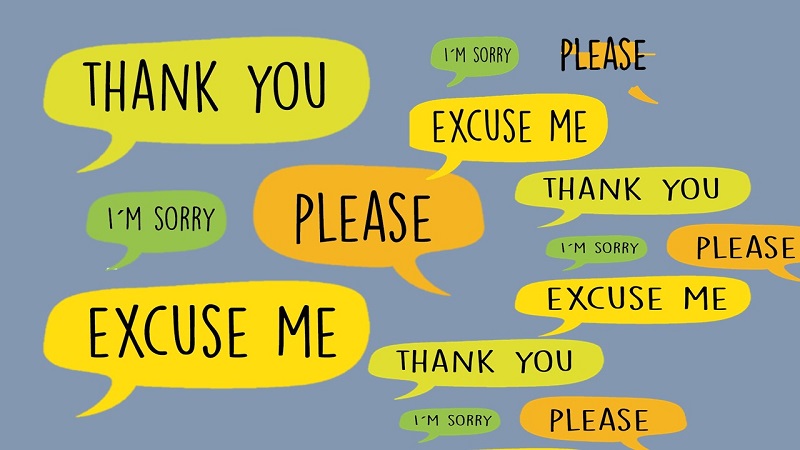The Importance of Manners for Teenagers
 Manners
Manners
As a teenager, you are at a stage in life where you are growing, learning, and interacting with a diverse range of people—from your family to friends, teachers, and even strangers. One of the most valuable tools you can carry with you during this time is good manners. Manners are not just about being polite; they reflect your character, build respect, and open doors to opportunities.
Why Manners Matter
Manners play a crucial role in shaping how others perceive you and, more importantly, how you make others feel. Here’s why they matter:
- They Build Respect
Respect is a two-way street. When you show good manners, such as saying “please,” “thank you,” or “excuse me,” you demonstrate respect for others. In return, people are more likely to treat you with the same level of respect. - They Foster Positive Relationships
Whether it’s with friends, family, teachers, or new acquaintances, good manners help to create a positive and welcoming environment. Being considerate and kind makes it easier for people to connect with you, paving the way for strong, healthy relationships. - They Prepare You for the Future
Manners are essential life skills. In the future, whether you’re at a job interview, attending a social event, or traveling, having good manners will make you stand out as a respectful and well-mannered individual. These traits are often valued by employers and can help you succeed in professional and personal settings.
Basic Manners
Every Teen Should Practice this;
While manners can vary based on culture and context, some universal practices can help you make a positive impression in any situation:
- The Power of ‘Please’ and ‘Thank You’
These simple words can make a big difference. Saying “please” when asking for something and “thank you” when you receive help or a favor shows appreciation. It acknowledges the other person’s effort and makes them feel valued. - Greeting Others Properly
Whether it’s a smile, a handshake, or a simple “hello,” acknowledging someone’s presence with a friendly greeting is a basic yet powerful gesture. It sets a positive tone and shows that you’re open to interaction. - Listening Attentively
Good manners go beyond just saying the right words; they also involve being a good listener. When someone is speaking to you, give them your full attention. Make eye contact, nod to show you’re listening, and avoid interrupting. It shows respect for their time and thoughts. - Using Kind Words
The way you speak to others can have a big impact on their feelings. Choose your words carefully, avoid using hurtful language, and try to be encouraging. Complimenting others and offering kind words can brighten someone’s day and create a positive atmosphere. - Respecting Personal Space and Boundaries
Everyone has their comfort zone. Respecting others’ personal space and boundaries is a key aspect of good manners. This includes things like knocking before entering a room, not invading someone’s privacy, and being mindful of physical space. - Practicing Table Manners
Whether you’re having dinner with family, eating out with friends, or attending a formal event, good table manners are essential. Simple practices like chewing with your mouth closed, not talking with your mouth full, and using utensils properly show respect for those you’re dining with. - Apologizing When Needed
Nobody is perfect, and everyone makes mistakes. When you’ve hurt someone’s feelings or made a mistake, a sincere apology can go a long way in repairing the relationship. It shows that you take responsibility for your actions and care about how others feel.
Digital Etiquette: Manners in the Online World
As a teenager, much of your communication may happen online through social media, texting, and emails. Digital etiquette, or “netiquette,” is just as important as face-to-face manners.
- Think Before You Post: Consider the impact of your words before posting comments or sending messages. Avoid sharing hurtful, offensive, or inappropriate content.
- Respect Privacy: Don’t share someone else’s personal information or photos without their permission. Respect their boundaries online just as you would in person.
- Respond Kindly: Even if you disagree with someone online, respond with kindness and respect. Avoid getting into heated arguments or using disrespectful language.
How Good Manners Benefit You as a Teenager
- Boosts Your Confidence
When you know how to interact politely and respectfully, it boosts your confidence in social situations. Whether you’re meeting new people, attending a family gathering, or participating in school events, good manners help you feel more at ease. - Improves Your Communication Skills
Manners are closely tied to effective communication. By practicing good manners, you learn to listen, speak clearly, and express yourself thoughtfully. These skills are invaluable not only in social settings but also in your academic and future professional life. - Creates Opportunities
Good manners can open doors to new friendships, job opportunities, and positive experiences. People are naturally drawn to those who treat them with kindness and respect, making it easier to form connections and make a good impression.
Tips for Practicing Good Manners
- Be Mindful of Your Actions: Take a moment to think about how your actions might affect others. This simple habit can help you be more considerate in your interactions.
- Observe and Learn: Pay attention to how polite and respectful people behave in different situations. You can learn a lot by observing adults or role models who practice good manners.
- Practice Makes Perfect: The more you practice good manners, the more natural they will become. Start with small gestures, like saying “thank you” or holding the door open for someone, and gradually incorporate more practices into your daily life.
Conclusion
Good manners are a valuable asset for teenagers. They help you build respect, foster positive relationships, and navigate social situations with ease. While it may seem like a small thing, being polite, respectful, and considerate can have a big impact on your life. It’s not just about following rules—it’s about showing kindness, empathy, and making others feel valued.
As you continue to grow and experience new things, remember that your manners reflect who you are as a person. They can help you create meaningful connections, earn respect from others, and set you up for success in both your personal and professional life. So take the time to practice good manners—they will serve you well now and in the years to come.





















Post Comment